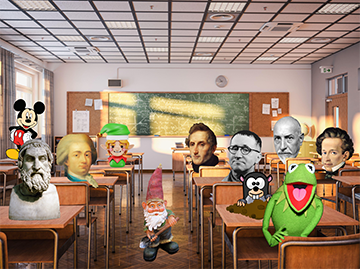A Norwegian playwright and writer of works for theatre, radio and television, Jon Jesper Halle is considered, along with Jon Fosse, to be the heir of the Ibsen tradition. Lilleskogen is a poetic drama which interweaves good and evil in a world without borders. The work by Joele Anastasi plays on memory, reliving those moments in which one passes from childhood to adulthood.
Teatro Grassi
Vunerability violated, promises broken, the inability to communicate. These are the themes examined in Joele Anastasi’s re-writing of Lilleskogen by Jon Jesper Halle. Halle’s piece is a “space” in memory, where adult/children or children/adults play, where good and evil come together to describe infantile fantasies of the unknown: every one of us perhaps becomes an adult in a precise moment, and innocence becomes fragility. Now that all the flowers are made of salt there is the chance to look in the mirror and see not only the adult that we have become, but also the moment in which, leaping out of the rut of childhood, we tripped. The deep-rooted relationships within a family sometimes render the divide between purity and brutality very slender.
“Every afternoon we went to play in the old abandoned lido, even though it was forbidden. My grandmother always told us that her father took her there every summer when it was still the only lido in the city and the growing port hadn’t yet led it to become an abandoned place... . When there were not yet the sirens of the ships which sounded the death knell because the fishermen had gathered with their nets only kilogrammes of hope. And the bodies were not laid along the quay. When salt was not the only flower which lay upon them and we didn’t even know what the word refugee meant, and everyone was simply a person.” Joele Anastasi
Vunerability violated, promises broken, the inability to communicate. These are the themes examined in Joele Anastasi’s re-writing of Lilleskogen by Jon Jesper Halle. Halle’s piece is a “space” in memory, where adult/children or children/adults play, where good and evil come together to describe infantile fantasies of the unknown: every one of us perhaps becomes an adult in a precise moment, and innocence becomes fragility. Now that all the flowers are made of salt there is the chance to look in the mirror and see not only the adult that we have become, but also the moment in which, leaping out of the rut of childhood, we tripped. The deep-rooted relationships within a family sometimes render the divide between purity and brutality very slender.
“Every afternoon we went to play in the old abandoned lido, even though it was forbidden. My grandmother always told us that her father took her there every summer when it was still the only lido in the city and the growing port hadn’t yet led it to become an abandoned place... . When there were not yet the sirens of the ships which sounded the death knell because the fishermen had gathered with their nets only kilogrammes of hope. And the bodies were not laid along the quay. When salt was not the only flower which lay upon them and we didn’t even know what the word refugee meant, and everyone was simply a person.” Joele Anastasi
Credits
Piccolo Teatro Grassi
Monday 19 September 2016, 8.30 pm
NORWAY - ITALY
Quando il sale non era l’unico fiore (When salt was not the only flower)
by Joele Anastasi, a re-writing of "Lilleskogen" by Jon Jesper Halle
study by Benedetto Sicca
with Francesco Aricò, Giorgia Cipolla, PierGiuseppe Di Tanno, Gaia Insenga, Mauro Lamantia, Lucia Marinsalta, Rocco Rizzo, Libero Stelluti
assistant director Gaia Saitta
space and costume design by Giuliana Rienzi
a Festival Quartieri dell’Arte production
Information and bookings
Telephone service 02.42.41.48.89
From Monday to Saturday 9.45 a.m. – 6.45 p.m.
Sunday 10.00 a.m. – 5.00 p.m.
Teatro Strehler
From Monday to Saturday 9.45 a.m. to 6.45 p.m.
Sunday 1.00 p.m. to 6.30 p.m.
On the evening of the performance the sale of tickets will close one hour before the performance begins.
Groups and organisations
For information on tickets and subscriptions for groups and organisations, and afternoon performances for schools and educational shows, please contact the Servizio Promozione Pubblico e Proposte Culturali.
Tel.02.72.333.216
e-mail:promozione.pubblico@piccoloteatromilano.it










